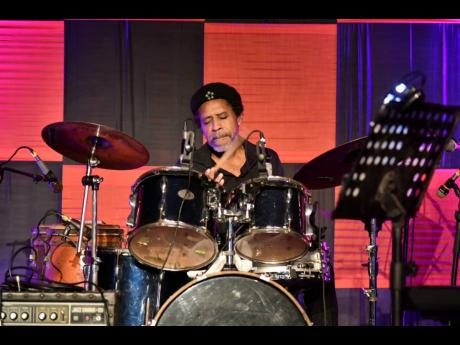
“Desi was a founding member of the band Chalice, and later formed his own band, Skool, in 1988. I became his manager when he formed Skool, and it was one of the best artiste-manager relationships I experienced in the business, of which I have been a part for many years,” Minister Grange said in a message posted to social media.
On April 30, when my ministry celebrated International Jazz Day, Desi accompanied Marjorie Whylie and both gave stellar performances and wonderful interpretations of Jazz compositions. Jamaica has really lost one of its greatest musical talents. Desi was a musician’s musician, whose skills crossed musical boundaries, and, importantly, he took the time to advance younger artistes, regardless of their development or their instrument,” Grange added.
She noted that in 2019 Jones was recognised by the government for his contribution to the development of Jamaican music in the genres of reggae, show music and jazz.
Herbie Miller, director and curator of the Jamaica Music Museum, who was with Jones and other musicians on Friday night after a gig at F&B Downtown, could not hide his grief.
"Desi was a true master drummer, particularly as a jazz musician. It is going to be difficult to fill the huge void left by his passing ... because Desi was first and foremost a jazz drummer who played other genres of music. And we don’t have many of those around,” a despondent Miller shared, as he reflected on his last outing with Jones.
“Desi was so humble ... so giving. He was a gentleman to the tee. He was always ready to play the drums, whether it was a birthday party or a big gig ... money or no money. ‘As long as you have a drum set I will be there’, Desi would say, because he doesn’t travel with his own drum. And he also loved a Red Stripe beer. Friday night after the show we were chatting and laughing for a long time ... didn’t know it would be our last. But when that door knocks you have to answer,” Miller said.
He hailed Jones as “a solid mentor for young musicians, not only drummers” and shared that he directed him to many talented youngsters whom he was able to employ when staging events
Desi Jones was born in Kingston on February 21, 1959. He started playing the recorder and conga drums at the age of seven at the Institute of Jamaica. At the age of 12 he started playing the drumset and also joined the Salvation Army brass band as a trombone player.
He became a professional musician in 1976 and, at 17, he was the drummer for the Sonny Bradshaw Seven, a top Jamaican dance band at the time. In 1980 he became a founding member of the reggae group Chalice and recorded at least seven albums of original material with the group.
His book, The Art Of Reggae Drumming, is acknowledged as “the world’s first instructional book on reggae drumming”. It was released in 1983.
